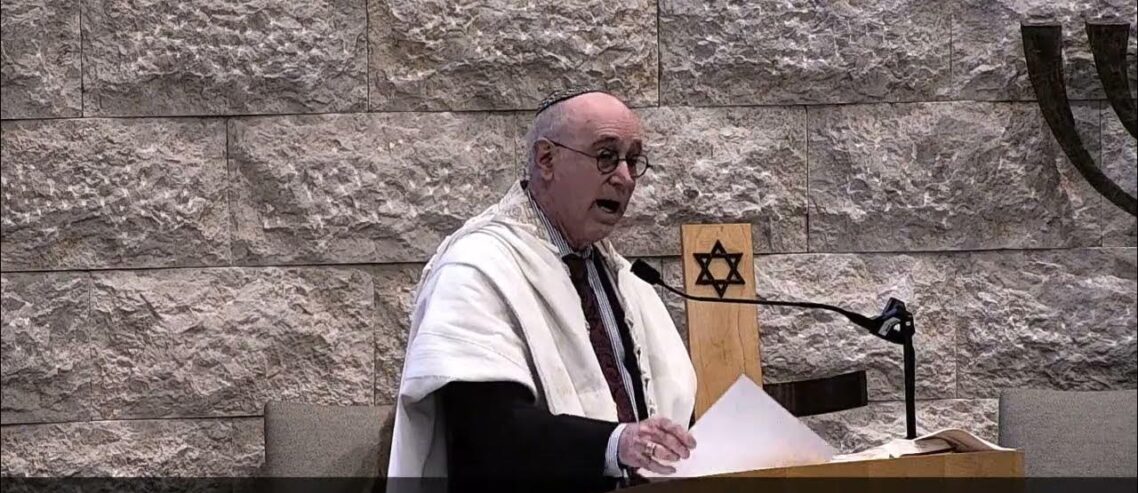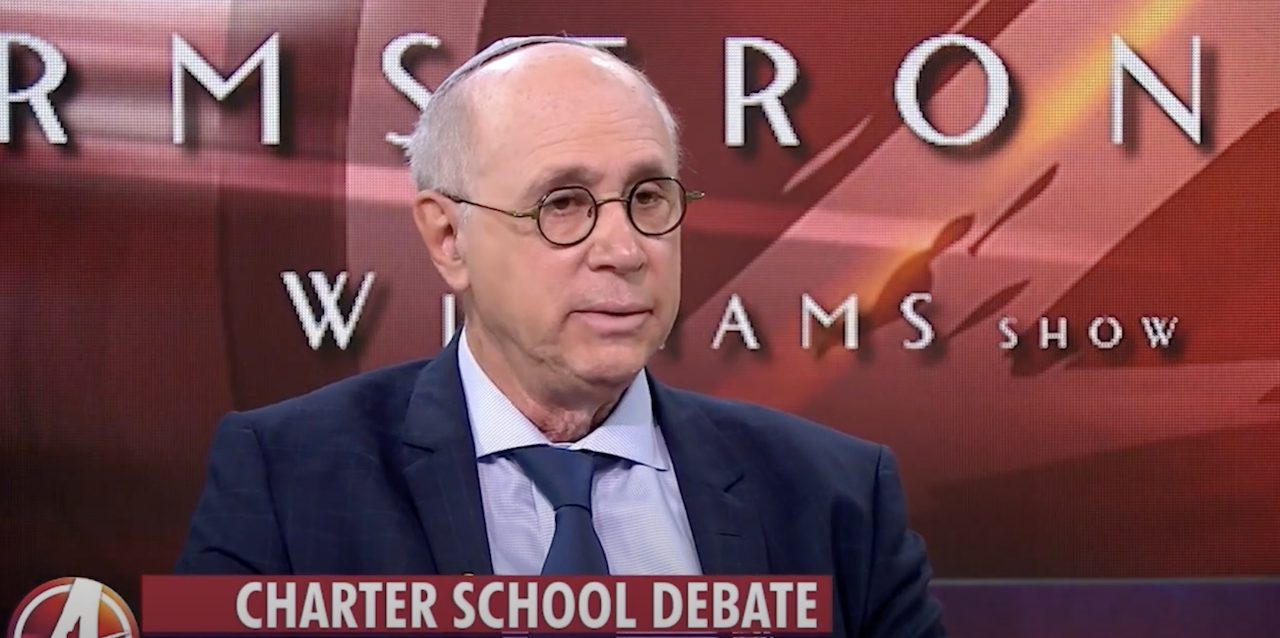In Israel It’s Still October 8, 2023
The calendar says that today is January 6, 2024. On the Jewish calendar, today is the 26th day of Tevet in the year 5784.
But in Israel, it is October 8th, 2023, the day after the horrific unimaginable unanticipated barbaric killing spree launched by Hamas on Simchat Torah, Saturday, October 7. It is as if time has stood still.
The nation is still traumatized and in shock from the tragic day known as Bloody Shabbat.
When Sallai Meridor, former Ambassador to the United States, and now the director of the new National Library welcomed us he said, “Boker tov: good morning”, and then quickly added, as if feeling guilty for saying this, “to the extent anyone can associate the word tov, good, with anything these days.”
The words that I heard most frequently during the three days I just spent in Israel with 17 rabbis from the Zionist Rabbinic Coalition on a Solidarity Mission capture the sentiment and offer insight into the mood in Israel today.
The first was “Todah”. Over and over we were thanked for coming. The people evacuated from their homes in the north several months ago, and who have been temporarily housed at a hotel in Jerusalem while displaced thanked us for coming. Several among them were Holocaust survivors. After we joined them in singing and dancing, and trying to bring them some joy, a few people spoke to us. One elderly man said, “I do not want to say anything.” Instead, he got up from his seat, came over and gave me and each of the rabbis in our delegation a hug to show his appreciation.
Tamara Haimov, the woman in charge of a massive volunteer operation to collect and distribute clothes, food, toys, and all kinds of things to soldiers and evacuees thanked us for coming, and for the hats I gave her which had been knitted by women in our congregation.
The volunteers at United Hatzalah who dispatch ambulances on motorcycles so that they can be on the scene to help within 90 seconds to save lives thanked us.
Although these people are the ones on the front lines, the ones who are helping others, the ones who risk their lives, we were the ones they thanked.
Another word we heard repeatedly was – “Nes” – which means “miracle.” People who survived the attack, people who commented on how much worse things could have been, how, despite the terrible tragedy felt fortunate to be alive, told us it was a miracle that they survived or that things were not worse.
Elon, the young man on Kibbutz Kfar Aza, whose close-knit family of 6 siblings and parents and children who all lived together on the kibbutz, and who are now sadly broken up and dispersed in different locations throughout the country, told us of his daughter who slept at his sister’s home with her cousins for a pajama sleepover party. Somehow the 12 people hidden in a bomb shelter for 10 hours, were among the few who were untouched even though they were near where the terrorists broke the fence of the kibbutz on their mission of murder, destruction, rape and pillage. “Had the terrorists known there were so many hiding there, they surely would have gleefully killed them all.”
Walking through the charred ruins and seeing burned out buildings where people once lived, and where some were burned alive was like seeing the aftermath of a pogrom, like walking through the ashes of Kristallnacht.
In Sderot we were told that terrorists kept going to the yeshiva across the street, armed with the knowledge that on Saturday morning the synagogue would be filled with young students. But since the yeshiva bochurs had been up until 2 am the night before celebrating Simchat Torah, the hundreds of students who would have all been victims slept in and were going to go to services late that day. Nes! It was a miracle we were told.
Israel is still a small country, often more closely resembling a big family. Everyone knows someone or knows someone who knows someone who was killed or kidnapped or a family directly affected by the attack.
In Tel Aviv we visited an expo with objects from the Nova Music Festival. It had a lost and found area, where people could come and see if they could find objects left behind by a loved one. One whole area had shoes piled up on tables, reminding us of the displays of shoes in Auschwitz.
Kikar HaHatufim, Hostage Square, the place which has the table set for the hostages is a powerful reminder of what happened and is still happening. It is a place harboring memories and where family members come to share the stories of their loved ones to be sure they are not forgotten. Someone played the haunting melody of Hallelujah on a piano. One person sat with a sign that said, “Shame on the Red Cross.”
But the signs and calls to remember were not confined to these places.
Wherever we went we saw reminders of that terrible day: Pictures of the hatufim, the hostages with their names were plastered everywhere and anywhere. The brand new, recently opened National Library had a digital display with pictures of all those who had been murdered. On another floor chairs were lined up, each with a photo of a person who was held hostage, and a favorite book chosen by the person’s family that their loved one loved to read. For the Bibas family, the 4 year old and the baby who was 9 months old when captured and who just turned 1 year old the other day while in captivity, there was a teddy bear and the kind of story book with pictures we read to our children.
While life goes on for us outside of Israel, and slowly but surely, gradually begins to return to some semblance of routine in Israel, there is a commitment not to forget that terrible day. Zachor, remember, after all is a Jewish obligation. Seared into our conscience, it is one of the most oft-repeated words and imperatives of the Torah.
Perhaps that is why the parents of young people who were killed wanted to speak to us – difficult as it was to talk about the murder of their child or children, they bravely did so. They wanted to keep alive their memory. They wanted us to know their stories – of how they lived, and in some instances, of the heroic way they died.
Elie Wiesel used to speak about the importance of being witnesses and of letting the world know about the horrors of the Holocaust. We who saw what we saw have that obligation to bear witness to the horror of what Hamas did.
We also saw signs proclaiming what we heard from everyone we met, “Yahad Nenatzach” – Together we will win, together we will prevail.
An elderly woman, one of the evacuees at the hotel told us, “The Jewish people are strong. We do not want war. We do not want to kill anyone, but we believe, Am Yisral Chai.”
The sense of unity and of putting aside all divisions to be able to defeat the enemy was extraordinary. The country literally turned on a dime. They went from weekly demonstrations of hundreds of thousands in the streets protesting judicial reform and pilots and reservists saying that they would refuse to serve, to turning out in record numbers to defend the homeland.
There is a broad consensus, among all – right, left and center that Hamas cannot be allowed to remain as a power that can pose a threat to Israel. It cannot continue to remain as a force in Gaza and that it must be defeated.
Throughout history armies have fought guerilla wars, and some have fought in urban areas, but none have had to fight soldiers hiding among a civilian population. None have had to fight where the army embeds itself among a civilians, and none in history have ever had to fight a tunnel war.
There is determination that Israel will do what it needs to do to defeat Hamas. Concern that the IDF would lose momentum and not be able to resume its operations after the cease-fire was misplaced. They are that determined. Soldiers risking their lives in Gaza for three months want to go back to finish the job. As President Herzog told us, as long as there is terrorism there can be no peace.
In Kfar Aza and Sderot we saw and heard about the pure evil launched by Hamas. Terrorists commandeered the police headquarters and killed a number of people before the IDF decided to drop a bomb and destroy the whole building to eliminate the 12 – 14 terrorists in the building.
This is no Six Day War. They are in it for the long haul.
As difficult and all-consuming the action in Gaza is, there is also great concern about Hezbollah and the north. In fact, while we were there, the evacuees we visited from Shlomi each received a red alert on their phone that rockets were about to hit their town. Thank God they were not home, as one of the rockets landed right next to a building where several lived.
Several people we met volunteered to share with us what they thought victory will look like. They said it will be not just the defeat and destruction of Hamas, but when Israelis will feel safe enough to be able to return to their homes and rebuild the communities destroyed by Hamas.
We Jews in America must do our part to let the world know that Israel must do what it is doing. There is no way they can live with this kind of evil cruelty intent on killing them governing the neighboring area.
There is much more to tell. Next week I will share with you some of the unbelievable stories of unique and inspiring heroism.
We went to Israel to send a message to our brothers and sisters in Israel: that they are not alone.
In our meeting with Isaac Herzog, Israel’s president, I commented that in this week’s Torah portion we read,
ויגדל משה ויצא אל אחיו וירא בסבלותם,
“Moses grew up and went out to his brothers and saw their suffering.”
A commentary on the verse suggests that rather than read ויגדל משה as “Moses grew up,” it can also mean – “Moses became great”. Reading the words that follow, we see that he became great because he went out to his brothers. Rendering the verse:
ויגדל משה ויצא אל אחיו וירא בסבלותם
“Moses became great because he went out to his brothers.”
In other words, he could have stayed in the palace of the Pharaoh and been indifferent to the plight of the Hebrews, but he did not and that is what made him great.
The verse goes on to tell us that when he went out to his brothers, he saw their suffering
שהיה רואה בסבלותם
On this part of the verse, a commentary in the Midrash adds,
שהיה רואה בסבלותם ובוכה והיה נותן כתפיו ומסייע לכל אחד
“He saw their suffering. and he cried (with them). He gave them his shoulder and offered aid (and comforted) each and every one of them.”
I concluded my message to the President by saying, “And that is why we are here – to lend a shoulder, to offer aid, support and comfort and to shed tears with our people.” And that is what we in the Diaspora must do as well, to stand with Israel as it seeks to succeed in its battle against the forces of evil it is fighting.





